Ethiopia
Tedros Adhanom Ghebreyesus, the World Health Organization (WHO) boss has stressed the importance of Universal Health Coverage (UHC).
The former Ethiopian health and foreign affairs minister, however, added that UHC was more a political than an economic challenge.
“Access to health care is a human right. Universal Health Coverage is a political choice I urge countries to make,” he said during an address at the 67th session of the WHO regional committee for Africa taking place at Victoria Falls in Zimbabwe.
“Access to health care is a human right. Universal #Health Coverage is a political choice I urge countries to make.”
— UHC Day (UHC_Day) August 30, 2017DrTedros#UHC #AFRC67 pic.twitter.com/RODXvDNZQo
Tedros, who is credited with wideranging reforms during his tenure as Ethiopia’s health minister had access to healthcare at the heart of his campaign to lead the world health agency. He replaced Margaret Chan as WHO boss after beating two other contenders in an election in May this year.
In its statement on UHC at the ongoing meeting, international pharmaceutical reserch group, IFPMA (the international Federation of Pharmaceutical Manufacturers and Associations), commended the integration of UHC in health strategies by African governments.
“IFPMA commends the integration of UHC as a goal in the national health strategies of African countries, and the rapid increase in total health expenditure in Africa which we have witnessed over the last two decades.
“Health plays a central role in enabling sustainable development, and investing in health goes hand in hand with economic growth and prosperity.
“As WHO’s own research shows, much of the increase in health spending, however, has been due to an increase in out-of-pocket expenditure by households and development assistance,” its statement read in parts.
The group, however, emphasized that importance of the pharmaceutical industry in achieving the goal of UHC. They underscored the industry’s importance especially in regards to investing in medicines and vaccines development and pursuing innovative approaches to expand access.
Their statement further stressed that effective partnerships with with NGOs, governments and private sector entities, was the best bet. The industry they added; was “supporting UHC through providing expertise in ensuring the quality and integrity of the supply chain, training health care workers, and filling gaps in undeserved areas.”
The week-long conference of African health ministers started last Sunday and is expected to end on Friday September 1. Ministers are discussing ways to improve the health and wellbeing of Africans.



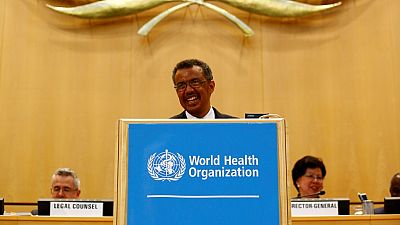

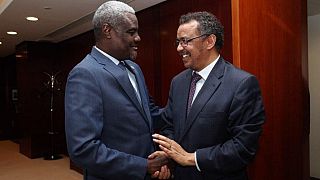
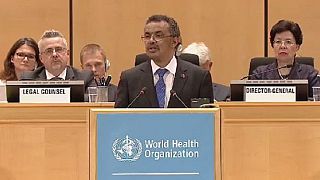
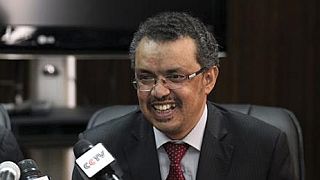
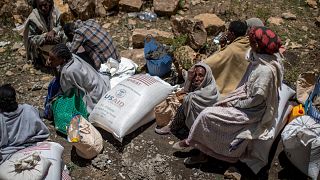

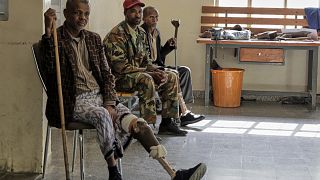



Go to video
Immunization at risk: Global health leaders urge action amid rising disease outbreaks
01:16
Africa mourns Pope Francis, a voice for peace and justice
01:14
ECOWAS Meets in Ghana to Tackle Member Withdrawals
Go to video
Ethiopians mark Easter with calls for peace and love amid ongoing conflict
01:02
WHO member countries draft landmark preparedness treaty for next pandemic
Go to video
EU foreign ministers discuss Ukraine, Syria and EU-African relations in Luxembourg.